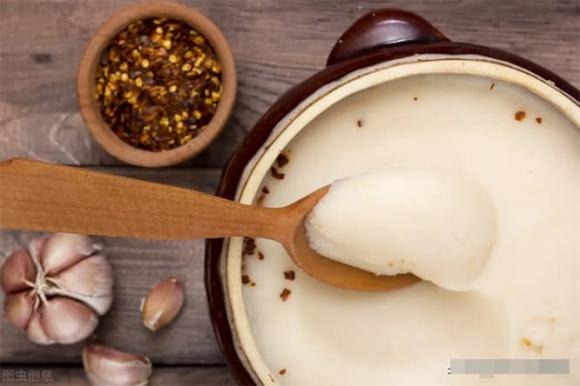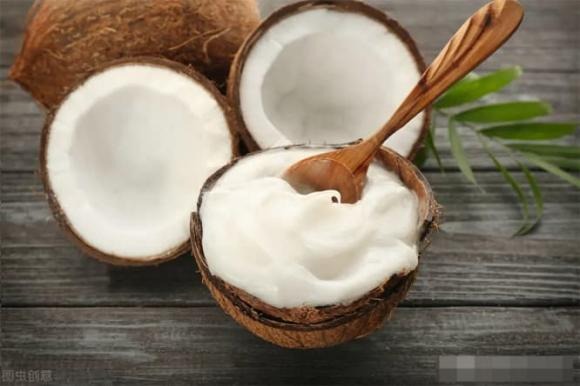There is a saying: “Food is the top priority of humans, and cooking oil is the top priority of food.” In life, cooking oil plays an indispensable role in every dish, whether it is Vietnamese cuisine or Western cuisine, frying, stir-frying, soup, or salad.
Eating oil properly not only creates attractive colors and flavors for dishes but also helps balance the oil structure in the body, providing important nutrients to maintain normal body functions. Observing daily life, we can see that cooking oil plays an important role and affects the quality of life.
However, when it comes to the type of oil, there are thousands of types such as peanut oil, corn oil, rapeseed oil, soybean oil, olive oil… In the process of taking care of health, the question arises: “Eating too many types of oil can be harmful to the body?” Today, we will briefly discuss with you about the 4 types of oil that nutrition experts almost never use:
Pork fat
When mentioning pork fat, most of us will feel the familiarity of its rich flavor and delicious memories from childhood meals. However, despite its attractiveness, pork fat is also a source of fatty acids and hard-to-digest oil, with a saturated fat content of up to 40%. Consuming excessive amounts of pork fat can lead to increased cholesterol and obesity. It is necessary to follow dietary recommendations to minimize health risks.

Coconut oil
Coconut oil, extracted from dried coconuts through methods such as grinding, steaming, frying, or pressing, is a natural plant oil with a characteristic coconut fragrance. Although good for health, coconut oil is also a saturated fat, with a saturated fatty acid content of over 90%. Consuming excessive amounts can increase cholesterol and obesity. Therefore, it is necessary to maintain stability in consumption.

Palm oil
Palm oil, extracted from palm fruit, is often used in deep frying due to its reasonable cost and low smoke point at high temperatures. However, palm oil also has a significant amount of saturated fatty acids, up to 49.3%. To maintain health, it is advisable to limit the consumption of food containing palm oil and avoid deep-fried foods if possible.
Artificial oil
The term “artificial oil” is often used to describe fats such as cream, butter, primarily extracted from milk and commonly used in the production of bread and pastries. Butter, although often used as a decorative ingredient for pizza, pastries, and other dishes, contains oil and fat that often contain high levels of saturated fatty acids, cholesterol, and sufficient calories. Therefore, when eating bread, it is advisable to limit the use of butter and avoid excessive consumption of packaged foods containing butter to maintain a healthy eating lifestyle.

How to use cooking oil in a healthier way?
Change oil types regularly: Change between oil types to ensure you receive the necessary diversity of nutrients. After a period of using one type, switch to another type to optimize the nutritional benefits.
Do not buy oil in large quantities: For cooking oil, it is advisable to avoid buying large bottles at once. Oil can spoil after opening the cap, so it is recommended to use it within 3 months after opening. Buying smaller bottles helps maintain the quality of the oil.
Give priority to vegetable oils: Choose to consume less animal oil and more vegetable oil to take advantage of the high nutrient content and healthy characteristics of vegetable oils.
Use low-oil cooking methods: When cooking, prioritize methods such as steaming, boiling, simmering, stewing, and making cold salads. Avoid using excessive oil in deep-frying and pan-frying to reduce oil consumption.
Tips on Selecting Healthy Cooking Oil and Safe Ways to Cook with It
A Taiwanese company has made a significant impact on the food industry through the recycling of over 700 tons of dirty oil, which has been exported to over 12 countries, including Vietnam. This has raised a few eyebrows among housewives, as cooking oil is an essential condiment in daily cooking. To ensure the safety and quality of their cooking oil, consumers should take note of the following advice.
Unlock Benefits of Meowington’s Meow-tastic Feline Elixir for an Exciting Feverish High
Vietnamese people’s fondness for mangoes is well-known, and they are more than just delicious tropical fruit. Not only do mangoes boast a sweet and sour taste that make them popular for both snacking and cooking, but they also offer a host of health benefits to those who consume them. Originating from Africa, mangoes are now widely grown in both Asia and Latin America.



































